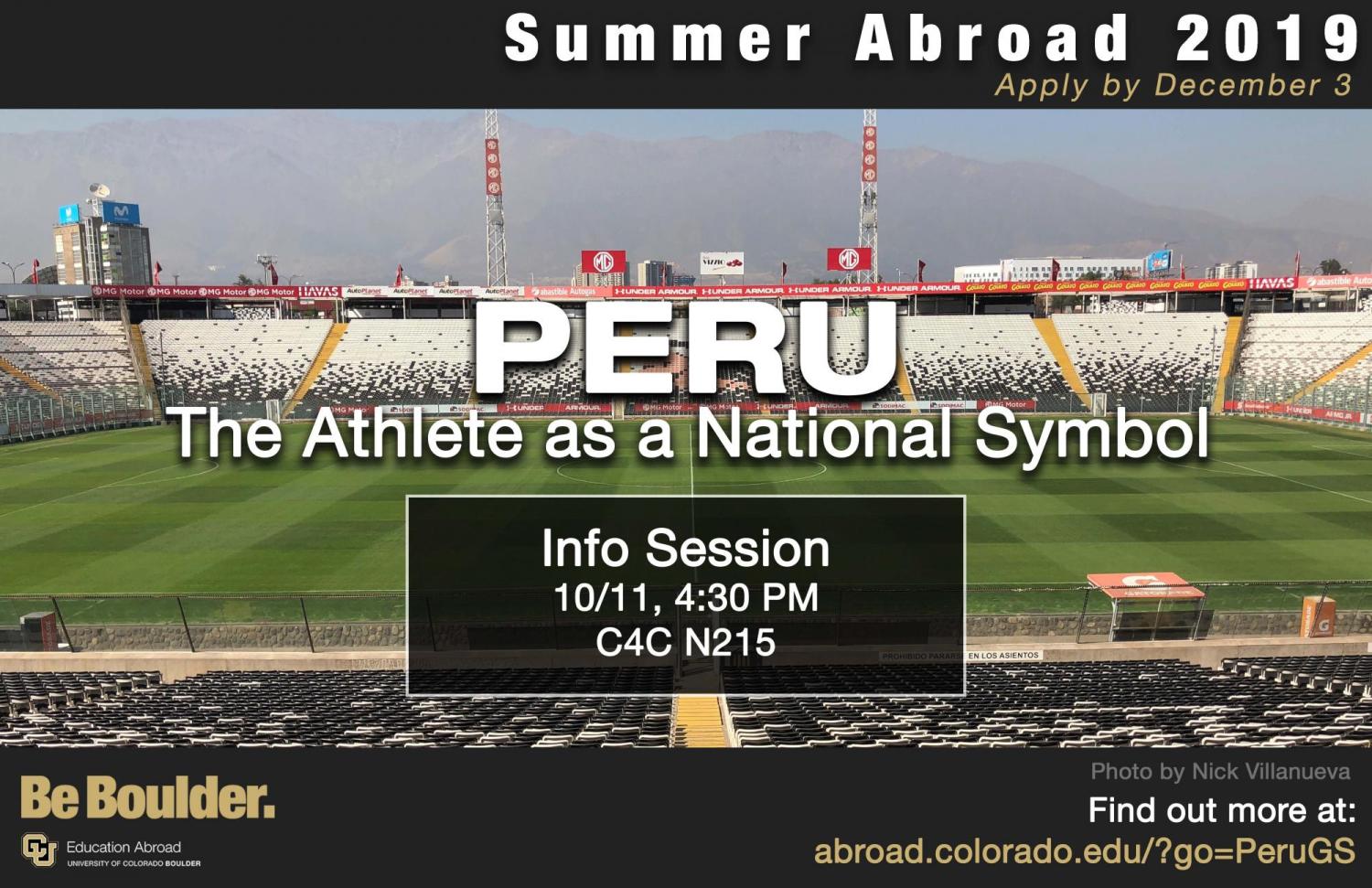2019 Ethnic Studies Study Abroad: Peru Info Session

The break up of the Soviet Union, the precarious status of nation-states in parts of Africa and Asia, the rise of multiculturalism in the United States, the acceleration of economic globalization and other related events of the 1980s and 1990s have prompted scholars to explore, in ways they had not before, both the power and fragility of nations and national identities. A fascinating interdisciplinary literature has emerged on how nations form, how nationalisms acquire and lost power, how national identity shapes (and is shaped by) identities grounded in region, race, ethnicity, and gender. This course will examine this literature, with a particular emphasis on sport. This course will examine how the media, race, gender, sexuality, and economics made the world of sport we see today. This course explores the athlete in a global context. The course will not be an exercise in sport history. This course will use sport, and the many documents surrounding the games, to gain a better understanding of how athletes became a symbol of nationhood, and how they are influenced by, and themselves influence, other aspects of society, including social, political, and economic aspects of their society. All of this will be examined in Lima, Peru. Lima will host the 2019 Pan American Games, and the opening ceremony as well as several sporting venues will be our classroom.
For more information click here

